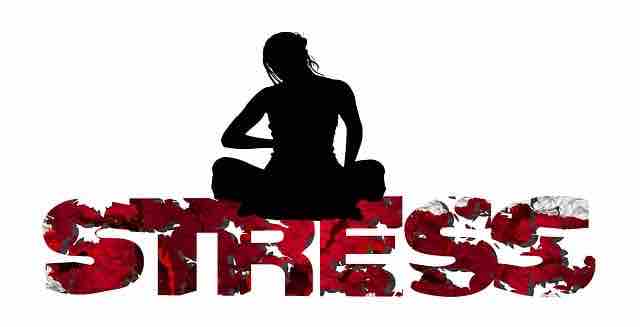Meditation For Stress and Anxiety Relief
10 Jun, 2025

Finding Calm: How Meditation Can Help Relieve Stress and Anxiety
In today's fast-paced world, stress and anxiety have become common experiences for many people. The pressures of work, personal responsibilities, and the constant influx of information can leave us feeling overwhelmed and anxious. While there are various ways to manage stress and anxiety, one practice that has gained significant attention and scientific backing is meditation. In this blog, we'll explore how meditation can be a powerful tool in alleviating stress and anxiety, and how you can incorporate it into your daily routine.
Understanding Stress and Anxiety
Before diving into the benefits of meditation, it’s important to understand what stress and anxiety are.
- Stress is the body's natural response to a perceived threat or challenge. While some stress can be beneficial, chronic stress can lead to various health issues, including heart disease, depression, and weakened immune function.
- Anxiety is a feeling of worry or fear about future events. It’s normal to feel anxious occasionally, but persistent anxiety can interfere with daily life and lead to anxiety disorders.
The Science Behind Meditation
Meditation is a practice that involves focusing the mind and eliminating distractions to achieve a state of mental clarity and emotional calm. Numerous studies have shown that meditation can significantly reduce stress and anxiety levels. Here’s how:
- Reduces Cortisol Levels: Cortisol is a hormone released in response to stress. High levels of cortisol over long periods can harm the body. Meditation has been shown to reduce cortisol levels, thereby reducing stress.
- Promotes Relaxation: Meditation activates the body's relaxation response, which counteracts the stress response. This helps lower heart rate, blood pressure, and muscle tension.
- Enhances Emotional Regulation: Regular meditation practice can help you become more aware of your thoughts and emotions, allowing you to manage them more effectively. This leads to better emotional regulation and reduced anxiety.
- Improves Focus and Concentration: Meditation improves your ability to concentrate and focus, which can help you stay calm and composed in stressful situations.
- Increases Mindfulness: Mindfulness meditation teaches you to stay present in the moment, reducing the tendency to ruminate on past stressors or future worries.
https://santeaching.com/program/meditation-for-anxiety-depression
Types of Meditation for Stress and Anxiety
There are several types of meditation that can be particularly effective for managing stress and anxiety:
- Mindfulness Meditation: This practice involves paying attention to your thoughts, feelings, and sensations without judgment. It helps you stay present and grounded.
- Loving-Kindness Meditation (Metta): This type of meditation focuses on cultivating an attitude of love and kindness towards yourself and others. It can help reduce negative emotions and increase feelings of compassion and connection.
- Body Scan Meditation: This practice involves mentally scanning your body for areas of tension and consciously relaxing those areas. It promotes relaxation and body awareness.
- Breath Awareness Meditation: Focusing on your breath can help calm the mind and reduce anxiety. It’s a simple yet powerful technique that can be practiced anywhere.
How to Get Started with Meditation
Starting a meditation practice doesn’t have to be complicated. Here are some steps to help you get started:
- Find a Quiet Space: Choose a quiet place where you won’t be disturbed. It doesn’t have to be a special room; it can be a corner of your bedroom or a quiet spot in the park.
- Set a Timer: Start with just 5-10 minutes a day and gradually increase the duration as you become more comfortable with the practice.
- Get Comfortable: Sit or lie down in a comfortable position. You can sit cross-legged on the floor, on a cushion, or in a chair with your feet flat on the ground.
- Focus on Your Breath: Close your eyes and take a few deep breaths. Focus on the sensation of your breath as it enters and leaves your nostrils or the rise and fall of your chest.
- Observe Your Thoughts: As you meditate, you may notice your mind wandering. This is normal. Gently bring your focus back to your breath without judgment.
- Be Consistent: Consistency is key to reaping the benefits of meditation. Try to practice every day, even if it’s just for a few minutes.
Incorporating Meditation into Your Daily Routine
To make meditation a regular part of your life, try these tips:
- Start Your Day with Meditation: Meditating in the morning can set a positive tone for the rest of the day.
- Use Guided Meditations: There are many apps and online resources that offer guided meditations, which can be especially helpful for beginners.
- Join a Meditation Group: Meditating with others can provide support and motivation.
- Integrate Mindfulness into Daily Activities: Practice mindfulness during everyday activities like eating, walking, or washing dishes.
Conclusion
Meditation is a powerful tool for managing stress and anxiety. By incorporating meditation into your daily routine, you can cultivate a sense of calm, improve your emotional well-being, and enhance your overall quality of life. Remember, the key is to start small and be consistent. Over time, you’ll likely find that meditation becomes a natural and beneficial part of your daily life.
So, take a deep breath, find a quiet space, and begin your journey towards greater peace and tranquility through meditation.




